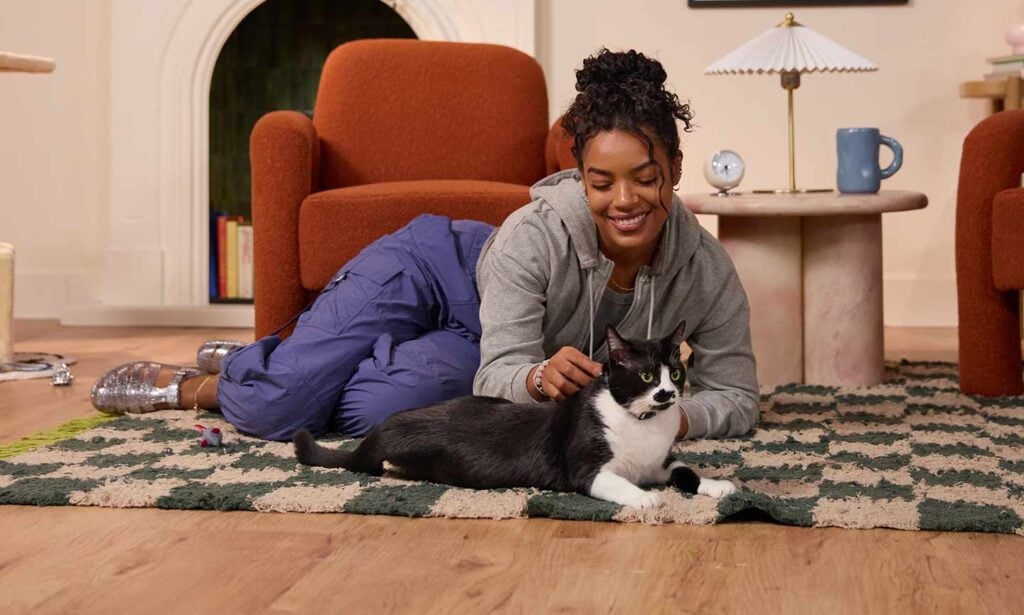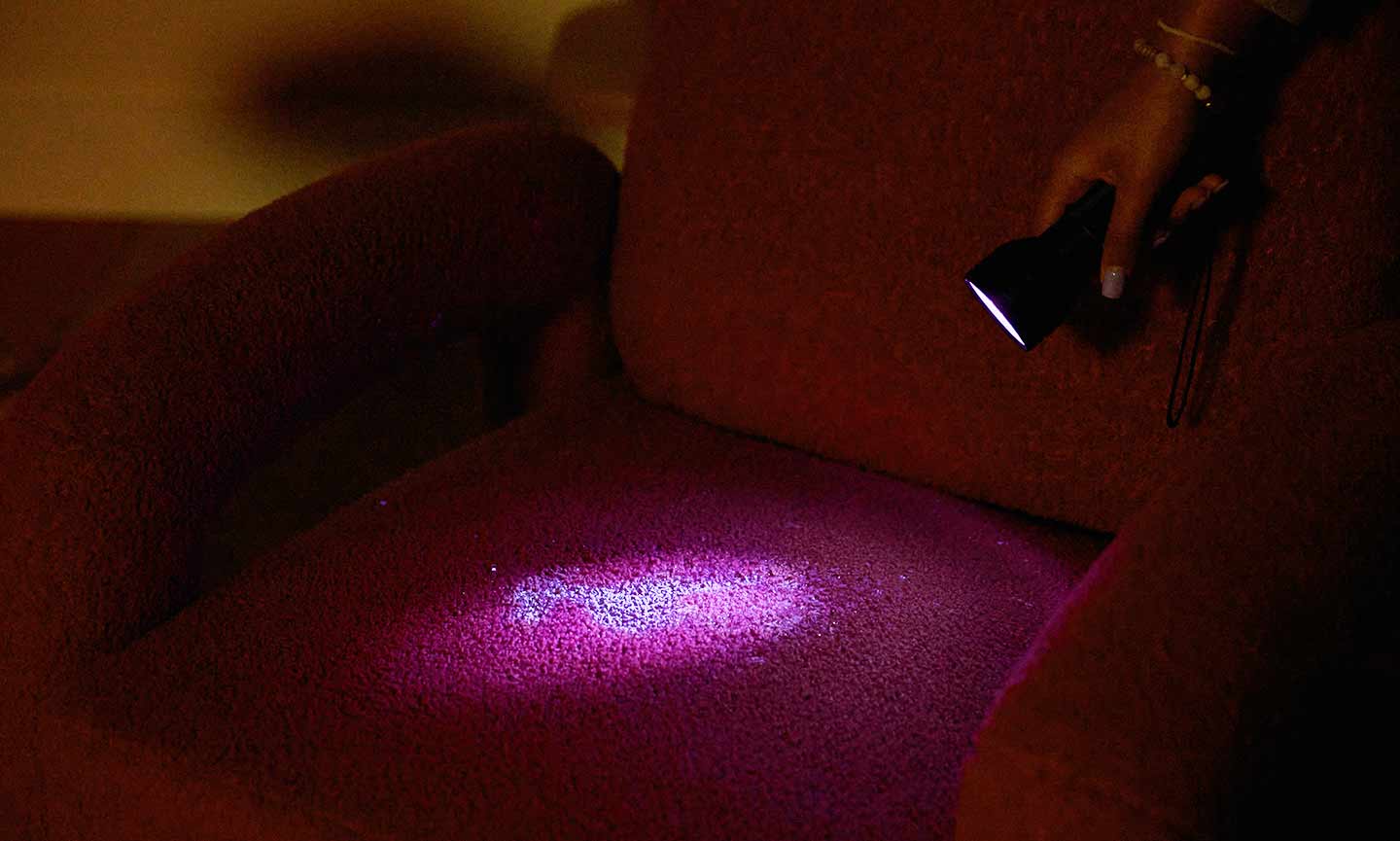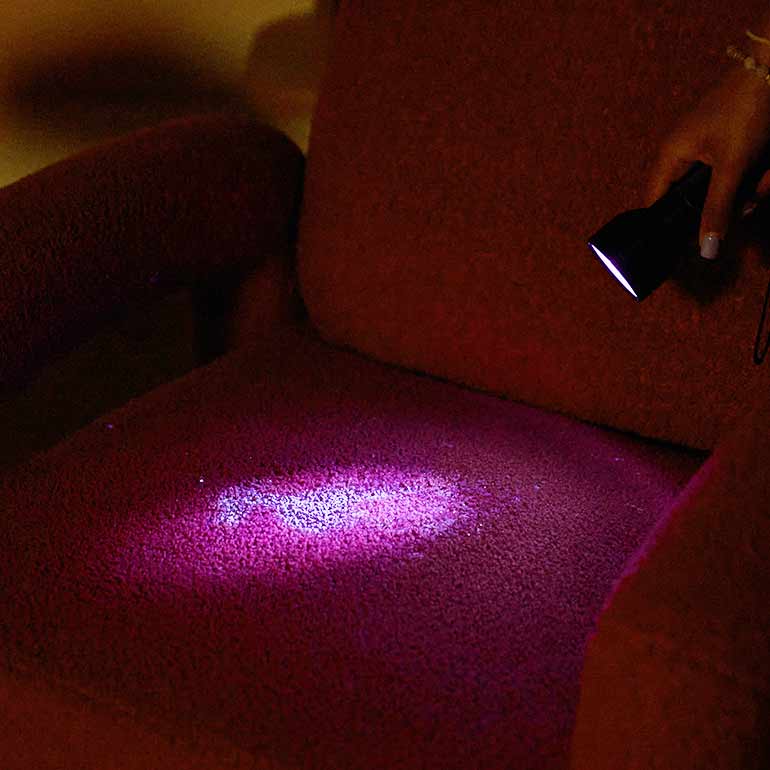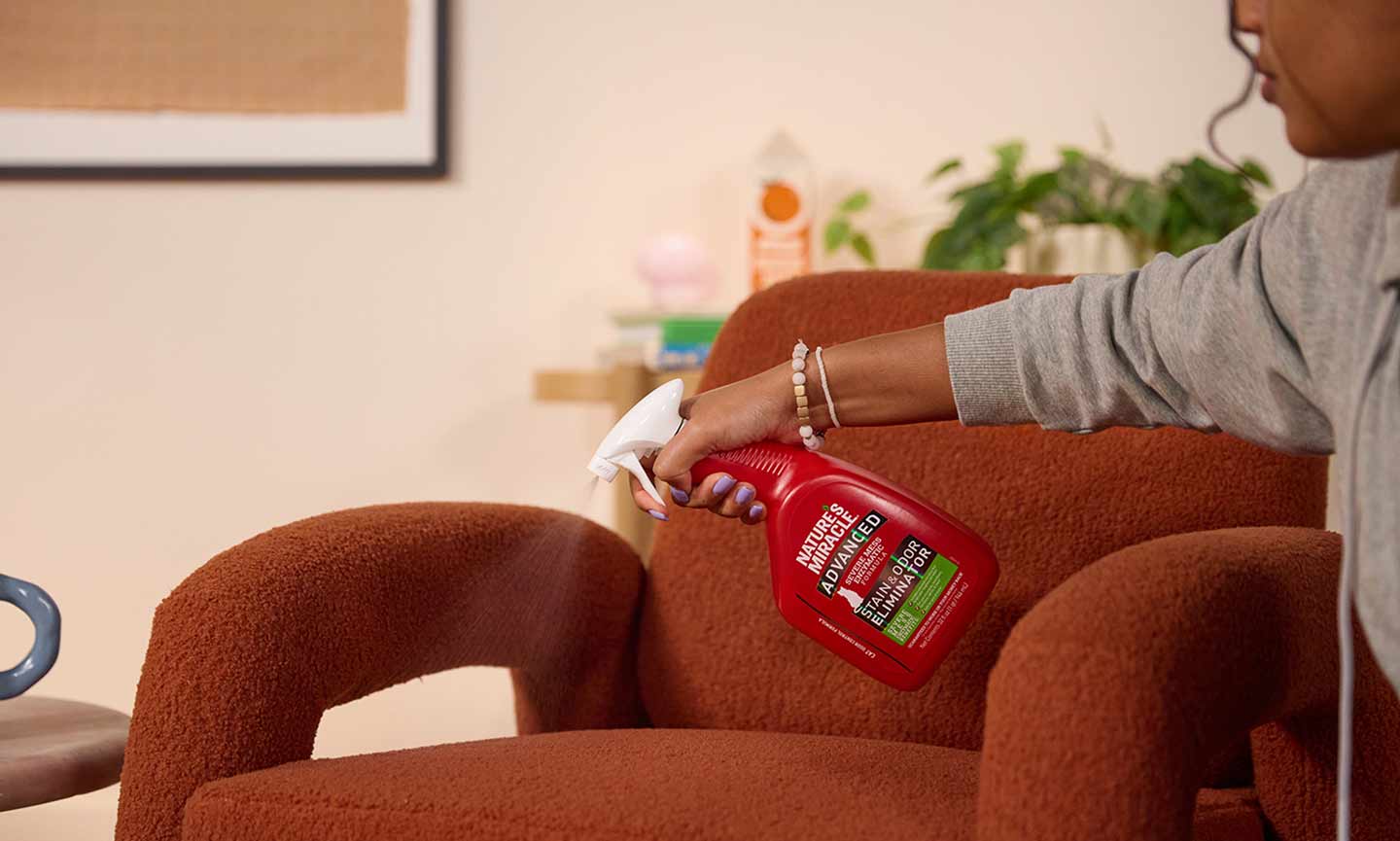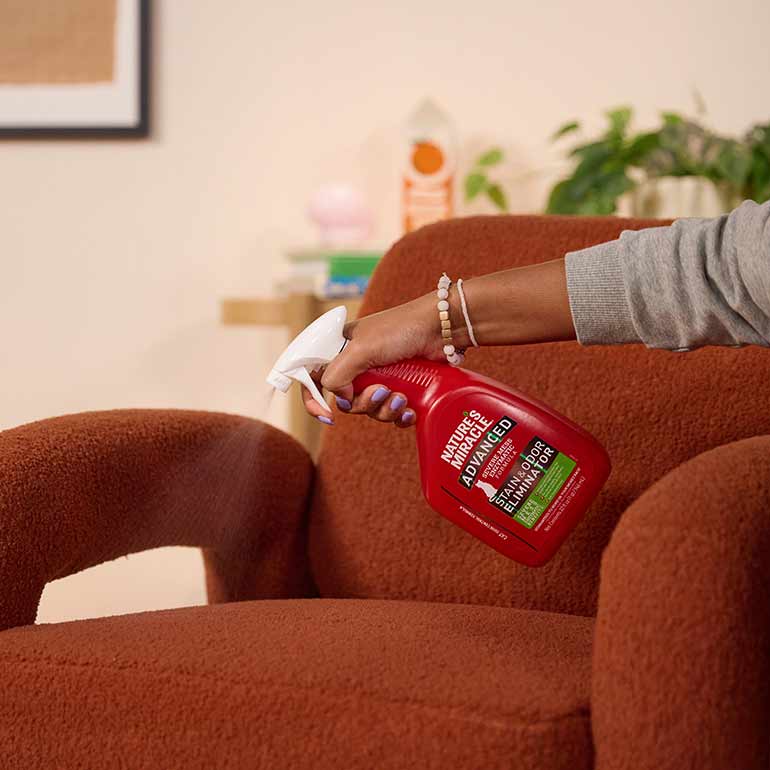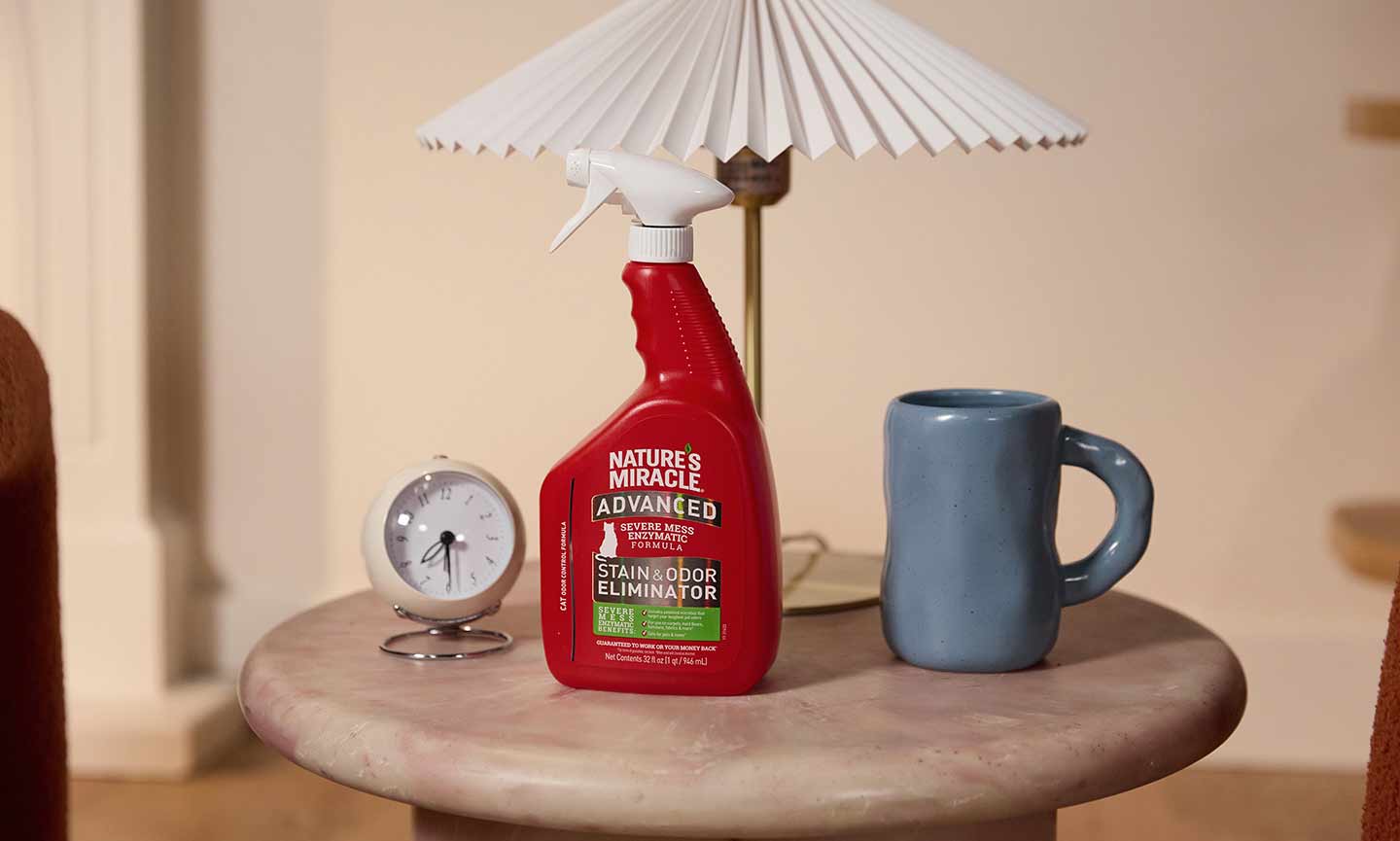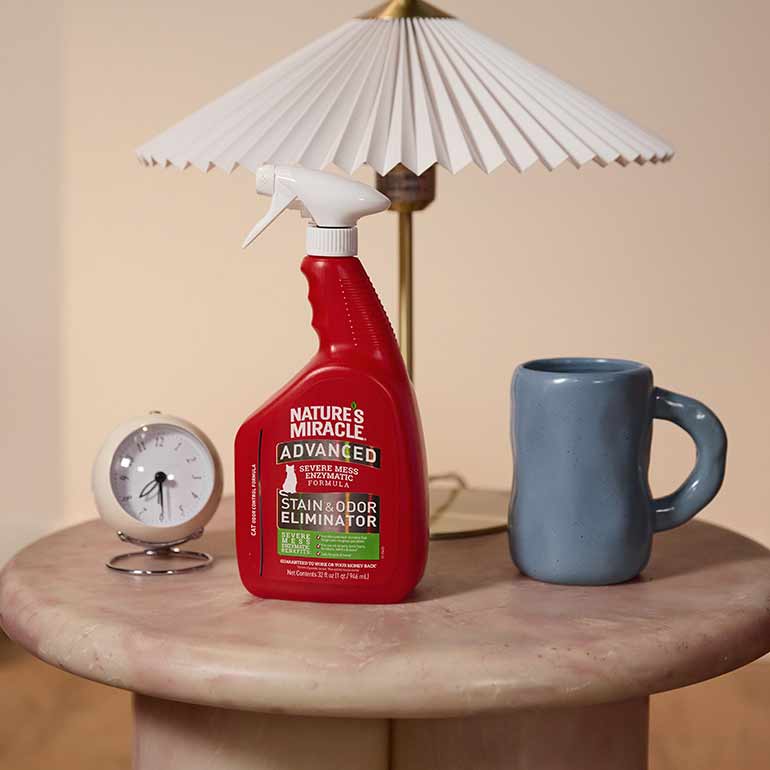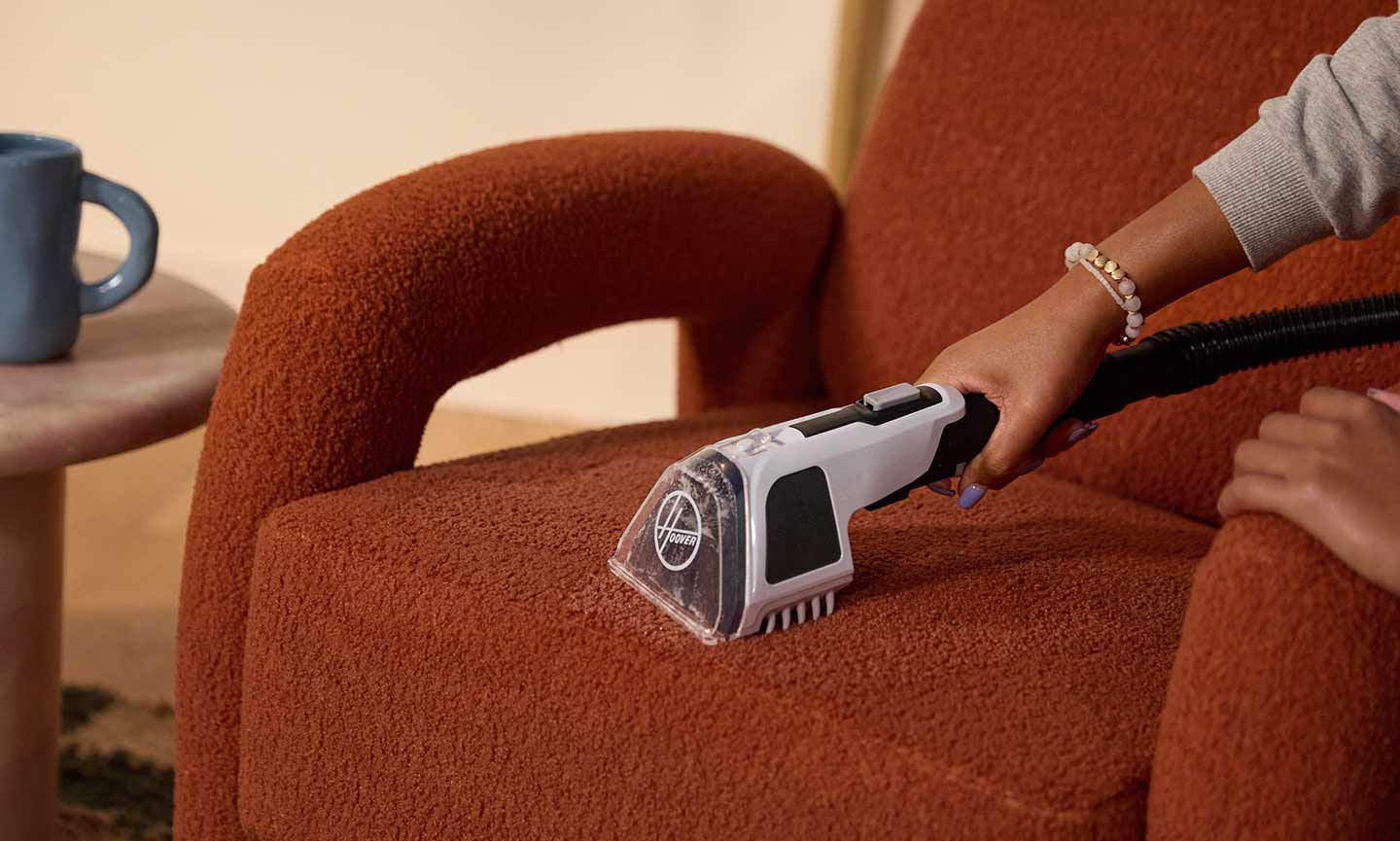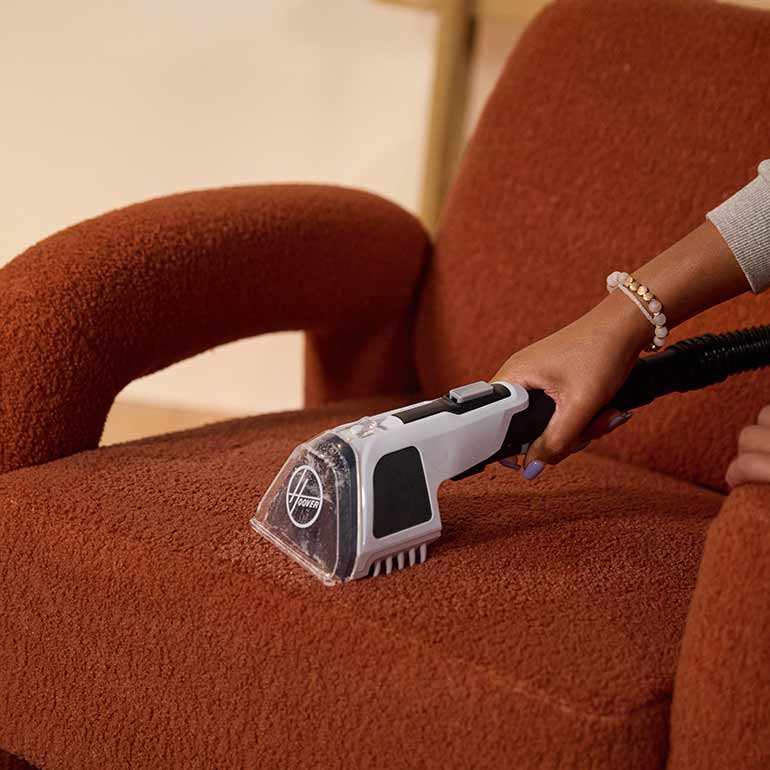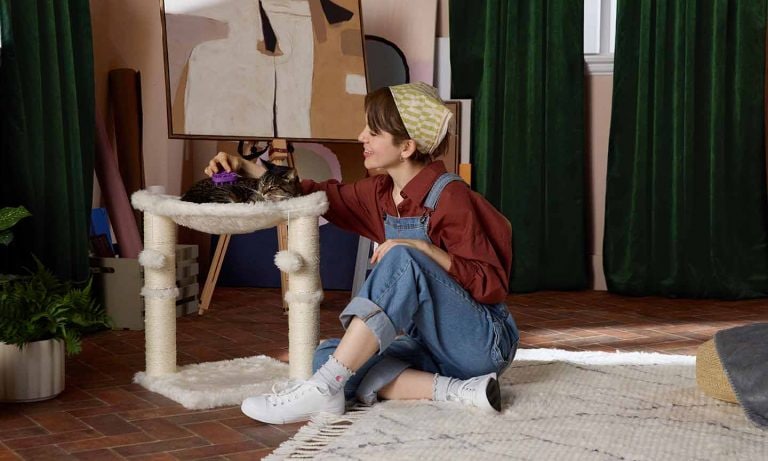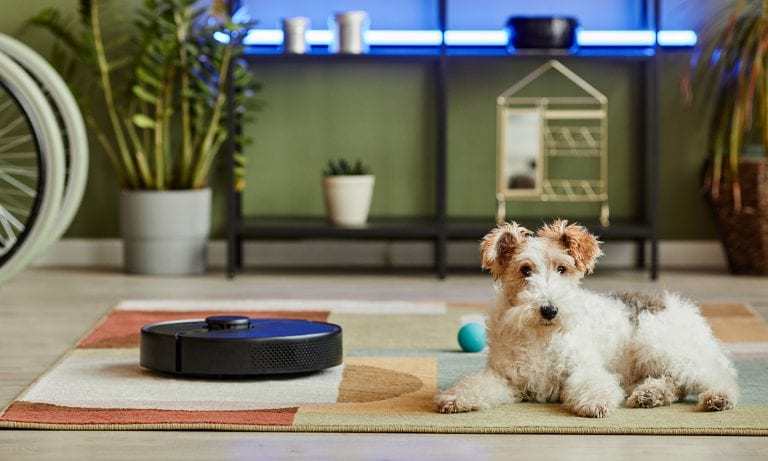In This Guide
How to Get Rid of Cat Pee Smell: Step-by-Step Instructions
No matter what surface your kitty has used as their personal litter box, there are a few basic steps you can take to get rid of any cat urine smell.
1 Find the source of the stain.
2 Apply an enzymatic cleaner.
Once you figure out where your stain is, you’ll need to apply an enzymatic cleaner, such as Nature’s Miracle Cat Urine Destroyer. Follow the instructions on your cleaner, and if the cleaner calls for you to add water, be sure to use cold water instead of hot water. Otherwise, the warm cat urine stain may start to smell worse. Yuck!
It’s important to thoroughly saturate the urine stain itself, as well as the space around the stain. For example, if you have a one-foot stain, spread your cleaner out in a two-foot circle to make sure the stain is thoroughly covered. Don’t be afraid to oversaturate the area and get deep into the fibers. You can also add an oxidizer or odor eliminator to the stained area if needed.
3 Let the product set.
4 Extract the liquid with a vacuum.
If possible, use a Shop-Vac or other vacuum designed for cleaning carpets and upholstery to remove the liquid. This is important because you will want to extract as much of the liquid product as possible from the surface.
If you don’t have access to a vacuum, use a paper towel or clean cloth to soak up the liquid. But do your best to soak as much up as possible, to avoid leaving residue from the enzyme cleaner on your surfaces. Leaving those cleaning products behind can damage your carpet and upholstery.
Getting Rid of Cat Odor in Your Carpet
When it comes to cleaning cat pee smell out of carpet, it all depends on how large the stain is. If you are only dealing with a small cat pee stain, getting cat pee odor out of your carpet can be a fairly easy DIY following the steps listed above. With carpet, you only need to clean the top layer of carpet, pad, and subfloor, so the process can be simple for minor stains.
For more prominent or multiple stains, it may be necessary to hire a professional cleaning service to fully eliminate the odor.
Getting Rid of Cat Odor on Hard Flooring
Finally, some good news: If your kitty pees on your wood or tile floor, it can usually be wiped up quickly with a cloth or paper towel. You might not even need a cleaner with enzymes; the cat urine odor can typically be cleaned with white vinegar and water.
However, if you suspect your cat is peeing to mark territory, it’s better to use an enzymatic cleaner rather than white vinegar. This way, the lingering smell of the vinegar doesn’t lure the cat back to the area to mark it again. Unfortunately, cat urine can also discolor hardwood floors, so they may need to be refinished or repaired once the stain or pet odor is removed.
Getting Rid of Cat Odor in Your Furniture or Mattress
Cleaning stains on furniture and mattresses is a lot trickier. For example, if you have a small urine stain on the surface of your favorite chair, you may be able to remove it just by cleaning the top surface of the cushion. However, if the stain soaks deep into the foam of the chair cushion, it may be time to call a professional cleaner.
That’s because, with deeper stains, it’s more difficult to remove the cleaning liquid from the interior of the cushions or mattress. Even with a vacuum, you probably won’t be able to suck all of the wetness out of the interior of the upholstery. If that liquid stays inside the cushions and foam, they won’t air dry properly, leading to mold and mildew.
Getting Rid of Cat Odor on Your Clothes
If your cat pees on your lap or in a laundry basket, it’s not the end of the world. Clothes or linens can be run through the washing machine to remove stains and smells. You can include some white vinegar to break down the smell more. You can also use an enzymatic cleaner made for laundry, like Nature's Miracle Stain & Odor Additive Laundry Boost.
Why Does Cat Pee Smell So Bad?
Hey, it’s a good question! Compared to humans and dogs, cat urine just stinks.
That’s because cat pee is more concentrated. Think of it like a can of apple juice. When the juice is in its concentrated form, it smells very potent. But, when you water it down, the smell dissipates. Cat urine has such a strong odor because it’s still in its concentrated state.
Young, healthy, intact male cats have the strongest-smelling urine. That’s probably because of hormones. Once a cat is neutered, his pee is much less potent. Older cats can have pee that smells less strong, too. This can sometimes indicate a serious health issue. For example, cats with diabetes or kidney disease may have more watered-down urine, so the smell of their urine is much less potent.
Why Do Cats Pee Outside Their Litter Box?
According to Dr. Kimberly Scrutchfield, there are a few common reasons a cat might decide to stop urinating inside her litter box. Sometimes, it’s caused by medical issues, but it can also be due to behavioral issues—both human and cat behaviors.
Medical Issues
If your cat is peeing outside the litter box, it’s always important to rule out that the change is not being caused by a medical issue. When a cat experiences pain during urination, they may want to avoid the litter box because that’s where it hurts. Or, if they feel they have to pee all the time, they may urinate in different places because of the urgency.
Cats who start peeing outside their litter box may be experiencing common problems such as urinary crystals, bladder stones, or urinary tract infections. Arthritis can also cause an issue because your cat’s paws may hurt when they scratch in the litter box. This is more common for declawed cats, who are prone to developing arthritis as they get older.
Poor Litter Box Hygiene
Make sure you are scooping your cat’s litter at least once daily. Your cat should have a large litter box (typically 1.5 times the length of your cat). Many cats like unscented clumping litter. And your litter box doesn’t need a liner. Place your cat’s litter box in a quiet area so your furry friend isn’t startled by unexpected noises, like people walking by or the washing machine running.
Bullying From Other Cats
Any inter-cat aggression can cause litter box issues. For example, behaviors may change when you bring a new cat home, so it’s important to take steps to introduce your cats to each other slowly. Always place your litter box where it’s easy for your cat to get out. This way, they can’t be trapped or attacked by other cats while using the litter box. If you have multiple cats, provide one litter box per cat plus one extra. These litter boxes should be in different areas of the house, too.
Not Spaying or Neutering Cats
A cat who marks their territory with urine is different than a cat who is squatting to pee on the floor or furniture. Male cats sometimes spray to mark their territory if they see cats outside. Female cats may urinate when they go into heat. Having your cat spayed or neutered at a young age can help avoid these issues.
Lack of Litter Training
When you bring a new kitten home, litter train them in a small space. This should be separate from any other cats or pets. Young cats should learn to use the litter box on their own before you expand their access to other areas of your home.
How to Prevent Future Cat Odors
Worried about future feline accidents? Here are Dr. Scrutchfield’s tips for preventing your cat from spraying or inappropriately urinating around the home:
- Have your cat spayed or neutered. Both intact male and female cats will instinctively spray around the house. Having your cat fixed helps them keep the pee in the litter box where it belongs.
- Make sure your cat is healthy. Get your cat checked regularly at the vet to ensure they don’t have health issues that could lead to litter box avoidance.
- Keep their bathroom neat and clean. Do you want to use a dirty, stinky bathroom? Neither does your cat. Keep their litter box area tidy to avoid any accidents around the house.
More Cleaning Tips
Share:
